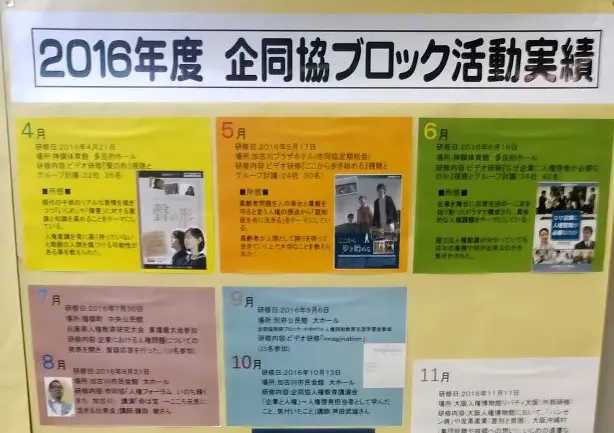[Supplementary Material for Integrated Report 2019]Securing and retaining human resources
Establishment of the Kobe Steel Group’s Basic Policy on Human Rights
Recognizing that respect for human rights is an important social responsibility for the company, the Kobe Steel Group has formulated the Basic Policy on Human Rights that respects the International Bill of Human Rights adopted by the U.N., as a corporate group that operates globally and clearly demonstrates its commitment to respect human rights in accordance with international norms, including the U.N. Guiding Principles on Business and Human Rights. We will promote human rights awareness activities so that all Group employees understand the background and carry out the objectives of our human rights policy.
Initiatives for Respect for Human Rights
- In the companywide stratified training undertaken by all employees when reaching career milestones, we provide education on the importance of respecting human rights in corporate activities and of creating a sound and discrimination-free work environment, in addition to our Corporate Ethical Principles and standards of conduct.
- Since 2004, Kobe Steel Group’s Training on Human Rights has been held every year. Training is provided to human resources managers and assistant managers at each of our business locations and Group companies on issues such as discrimination, harassment and diversity, in order raise human rights trainers. At the same time, instructors have been developing training programs at each workplace in order to improve the human rights awareness and practical abilities of employees.
- In our daily business activities, we recognize the importance of considering the human rights of various stakeholders and conducting activities in cooperation with external organizations. As an example, our Kakogawa Works belongs to the Kakogawa City Corporate Human Rights and Dowa Education Council and is working to resolve human rights issues from a corporate perspective.

- We regularly conduct risk assessments on labor issues when planning new projects and existing projects to prevent inappropriate labor, discrimination, and rights violations.
- In accordance with our policy of prohibiting child labor and forced labor in all countries and regions where we operate, we conduct periodic monitoring surveys of our Group companies to prevent such occurrences in our business activities.
- We strive to build sound labor-management relations through sincere dialogue with all employees or their representatives.
Major forums for labor-management discussions and consultations
Central Production Committee:Improvement of facilities and technologies, improvement of production efficiency, etc.
Central Labor Council:Improvement of labor conditions and improvement of wages (including negotiations regarding living wages advocated by the labor union)
Specialized Committee on Employment: Reduction of long working hours, promotion of work-style reforms, supporting and balancing childcare and family care - In the event of a violation of human rights or non-compliance with our human rights policy, we will investigate the facts and take appropriate measures.
Efforts to Prevent Bribery
The Kobe Steel Group has established the Bribery Prevention Policy to further strengthen its bribery prevention initiatives and to clarify its stance on not approving and not tolerating bribery for whatever reason. Based on the Bribery Prevention Policy, the Kobe Steel Group will make further improvements to its bribery prevention system.
Number of violations in fiscal 2018: 0
Support for career development and skills development
OJT (on-the-job training) is the basis of training in workplaces, and supplementary training is provided to support employee development. Training systems are established for each of the job categories of managers, career-track employees, and kikanshoku (technical employees and administrative employees), and the contents for stratified training are reviewed every year. In fiscal 2018, we reviewed the contents of the training by job category in response to the quality misconduct and are working to deepen our understanding of the problem. It is important for employees to have specific goals for growth and to grow day by day, with the Company providing full support for their growth.

- *The number of employees trained consists of the total number of employees at all locations.
- *Leader education (training for selected employees, etc.) includes stratified training for managers.
- *Training on specific topics: Compliance training, diversity training, health and safety training, etc.
10-Year Financial and Non-Financial Data (Supplementary)
| 2016 | 2017 | 2018 | |
|---|---|---|---|
| Ratio of female employees (includes domestic Group companies) | 9.6% | 9.9% | 10.6% |
| Voluntary retirement rate of full-time employees (full-time employees at parent company) | 1.2% | 2.2% | 2.0% |